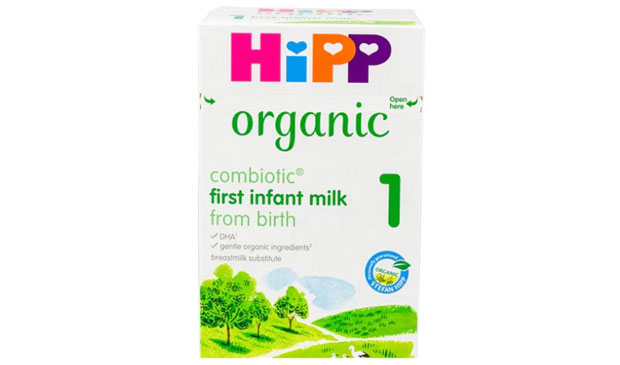A Guide to Infant Formula and Bottle-Feeding

A Guide to Infant Formula and Bottle-Feeding
Baby formula is a very good substitute for breast milk. There are all kinds of products out there now to make things easier and formula is of course a very important product as many mums cannot breastfeed for various reasons. Most infant formula products are produced from cow’s milk and contain minerals and vitamins. Modern-day formulas are much better than what was available even a few years back. Now, the key nutrients in them provide support for the growth requirements of babies in the first six months of their lives. The Milky Box is one of the most reliable online stores that are selling formulas with golden standard nutrients. Their professional team will help you to choose the best product for your little one.
Precautions While Selecting the Baby Formula
Most babies are ready to start eating solids after 6 months. However, the CDC has reommended that babies should not consume cow’s milk before 12 months of age. Unfortunately, most baby formulas are developed from cow’s milk, which is why parents need to check the label before buying if they’re looking to avoid this.
There are some products that are developed from rice or soybeans instead. Many of them also include fats from vegetable oils, which support the growth requirement of the infants. You will also find specialty formulas that are altered to make it easier for the babies to digest them. However, it is always best to consult a pediatrician or an expert before trying such a product.
You will also find extra ingredients in some formulas, which make them a close match to breast milk. Breast milk contains antibodies, for example, which protects the infant against many illnesses. This is a major difference. However, the modern-day formula products are rich in many nutrients that can prevent disease too and also support all growth requirements. HiPP Formula, for example, has received many favorable reviews both from the experts and parents.
There is another difference between the two. Formula contains more protein, which increases the risk of obesity as the kids get older. However, here too, you will find formula products that have a lower protein level. The best quality formulas now are nutritionally complete foods. Choose wisely because it is always a challenge to change the formula.
Why Formula Milk Is Better Than Cow’s Milk
The best quality formula milk products have added minerals, fats, and vitamins, which the babies require. Normal cow’s milk does not have many of them. Also, most babies are not able to digest cow’s milk and absorb it as easily as formula or breast milk. This is because, the level of protein in cow’s milk is simply too high for infants who are less than a year old.
This is why, cow’s milk should never be the main food of babies who haven’t yet turned a year old.

Stage 1 and Stage 2 Formula Milk Products
- Stage 1 – Baby formula products for up to 6 months
- Stage 2 – Formula milks up to 12 months
Stage 1 milks are sometimes referred to as ‘starter formulas’. They are recommended up to 6 months, but you can keep feeding them up to a year, especially if you are happy with the health and growth of your infant. In other words, there is no strict requirement for you to shift to Stage 2, as they are not necessarily better.
You can safely depend on HiPP formula stage 1. This whey-based formula is nutritionally complete and also gentle for the newborns. It can also complement breastfeeding. HiPP 1 also contains prebiotic oligosaccharides for gut health, Omega 3 & 6, minerals, nutrients, and vitamins. There is no added wheat, peanut, egg, nut, celery, and it is also gluten free.

- There are also AR or Anti-Reflux formula milks that have a thickener, which keeps the milk in the stomach and reduces the risk of reflux.
Baby Formula with Additives
You will find a few formulas that have additional ingredients to make them more similar to breast milk. However, these ingredients won’t work in the same way like breast milk within your infant. Here are some of them:
- LCPs (long chain polyunsaturated fatty acids) – Babies need them for nerve and brain development. There is, however, no evidence so far that shows babies can absorb them into their bodies when they get LCPs from formula. They can help premature babies, though.
- Betacarotene – An important source of anti-oxidants and vitamin A.
- Prebiotics and probiotics – They can help infants develop healthy bacteria in their guts. The bacteria, in turn, will make the poo softer. It will also reduce nappy rash, which will provide relief.

Formula Bottle Feeding and Allergies
Some babies are allergic or sensitive to formulas that are developed from cow’s milk. It is the protein in the milk that causes the problem. Many experts recommend Hydrolysed formula as an alternative. Here, the cow’s milk is broken down into smaller particles, which makes it easier to digest.
You will find many specialized formulas for babies with soy formula or cow’s milk allergy. However, these alternatives are usually expensive.
Read this guide for a more detailed understanding of how to select the best formula for your baby. Always be careful about what you are feeding your infant. Remember, it is not a good idea to change too many times. Here are some more tips on bottle feeding the baby.
Guest Article. Contains a sponsored link.




